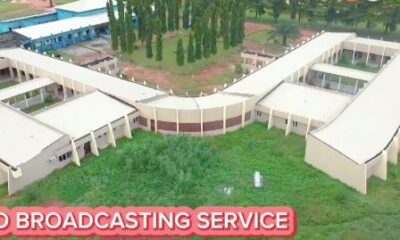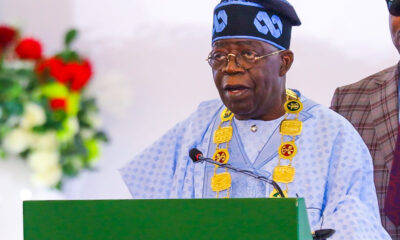Features
Nigeria’s Security Situation: A call for urgent action and accountability by Sulaiman Aledeh

The recent wave of kidnappings and security challenges in Nigeria has once again brought to the forefront the urgent need for a comprehensive overhaul of the country’s security apparatus.
The reunion of twenty medical and dental students with their families, as well as the release of corps members held captive by Boko Haram for a year, while positive developments, underscore the severity of the security crisis facing Nigeria.
One of the most glaring issues is the apparent inability of Nigeria’s intelligence and telecommunications agencies to effectively track and intercept communications between kidnappers and their victims’ families. This failure is particularly concerning given the technological advancements available in the modern era. The Minister of Communications, Innovation and Digital Economy, Bosun Tijani, despite being touted as a tech expert, has yet to demonstrate significant progress in addressing this critical gap in our national security infrastructure.
The resignation of Ahmed Rufai Abubakar as the Director-General of the National Intelligence Agency (NIA) raises questions about the effectiveness of our foreign intelligence service. While the NIA should ideally function as Nigeria’s equivalent to the CIA, its performance has been lackluster compared to other security agencies like the Military and the DSS actively dealing with national issues.
The frequent use of the phrase “no ransom was paid” in official statements following the release of kidnap victims has become a predictable script, raising doubts about the transparency of these operations and the government’s strategies in dealing with kidnappers.
It is imperative that President Bola Tinubu takes immediate and decisive action to address these security challenges:
- Review and overhaul key appointments: The President should critically evaluate the performance of ministers and heads of agencies, particularly those in charge of security, intelligence, and telecommunications. Those who have failed to meet expectations should be replaced with competent individuals capable of delivering results.
-
Empower effective leaders: Identify and support officials who have shown promise and effectiveness in their roles, providing them with the necessary resources and authority to implement robust security measures.
-
Enhance technological capabilities: Invest in and deploy advanced tracking and surveillance technologies to support the efforts of security agencies in combating kidnapping and other criminal activities.
-
Improve inter-agency coordination: Foster better collaboration between various security and intelligence agencies to ensure a more cohesive and effective response to security threats.
-
Address root causes: Implement comprehensive policies to tackle the underlying socio-economic factors contributing to the rise in kidnapping and banditry.
-
Increase accountability: Establish clear performance metrics for security agencies and government officials, with regular public reporting on progress made in combating security challenges.
The time for half-measures and empty rhetoric has long passed. President Tinubu must demonstrate strong leadership by taking bold steps to arrest the tide of kidnapping and banditry, enhance the protection of lives and property, and restore the faith of Nigerians in their government’s ability to ensure their safety and security.
The Nigerian people deserve a government that can effectively utilize its resources to protect its citizens. It is time for action, accountability, and tangible results in the fight against insecurity in Nigeria.
Sulaiman Aledeh international journalist/News Anchor of Arise News writes from Nigeria’s capital, Abuja



























